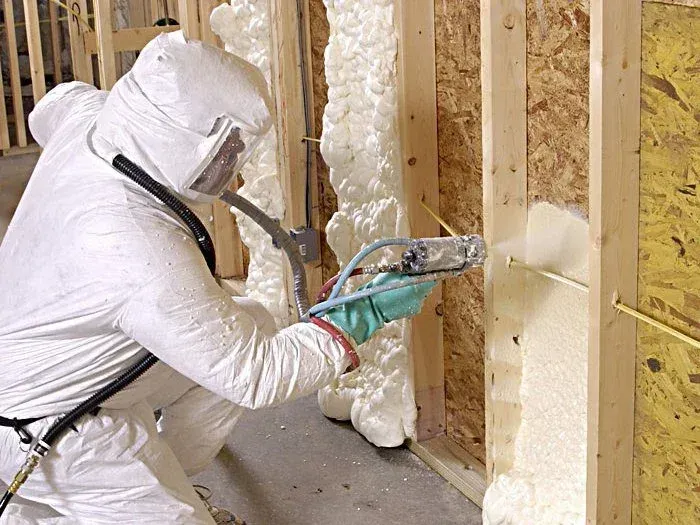Private Landlord Claims
We are here for you if you are a private tenant with housing disrepair
Take our free quiz to find out if you have a claim or book a call with our friendly Housing Disrepair Team
Yes, we do help Private Tenants
But we do understand that it's not an easy decision.
Are you are a private tenant living with housing disrepair?
Are you are scared you might not get your deposit back?
Are you frightened about asking for help in case your landlord evicts you?
Are you at breaking point and just can't take it anymore?
What you need to do
The first step is to contact us. We won't do anything or contact your landlord without your consent. We will discuss your options with you and if we can help we will, but a housing disrepair claim might not be the right option and we will advise you accordingly.
Get Started Today
If you believe your property has been damaged by the installation of spray foam, please reach out to us for professional legal support
STILL NOT SURE?
Frequently Asked Questions
We hope this information is useful, but please contact us if you have any other questions
Can my landlord evict me if I start a claim?
The short answer unfortunately is still yes. Whilst there are some changes to the law coming which means landlords will not be able to evict you if you're not at fault, those changes still have yet to come into force and landlords can and will still evict as a means of retalliation.
How much will it cost me to claim?
We help private tenants on the same basis as council and housing association tenants - no win no fee. This means you do not pay anything up front and only pay for our services when your claim is successful.
What can I claim for?
You can claim compensation for living in a property that is in disrepair, along with any damages for personal items that have been damaged and any injury to your health due to the disrepair.
How much compensation will I receive?
The main focus of a housing disrepair claim is to get your property repaired to the highest possible standards (not your landlord's standard). Compensation depends on the severity of the disrepair and how long you have been complaining about it. It varies on a case by case basis.
What do I need in order to make a claim?
You need to have informed your landlord of the disrepair and given them a reasonable amount of time to make those repairs. If they are ignoring you or refusing to repair then providing you still live in the property and can prove that you have notified the landlord then you can make a claim.
I am in arrears, does this make a difference?
Yes, it can make a difference to your claim. If you are not paying rent (even if you believe that withholding rent is fair due to the poor state of your property) you are in breach of your tenancy agreement and your landlord can evict you.

The Green Homes Grant and Sprayed Foam Insulation: What Homeowners Need to Know
Introduction
The UK government's recent £2 billion initiative, the Green Homes Grant, offers homeowners in England up to £5,000 for home insulation improvements. While this is a promising opportunity to enhance energy efficiency through accredited local suppliers, the choice of insulation material is critical. One method that often raises eyebrows among conservationists and surveyors alike is sprayed foam insulation. But is the caution surrounding this technique justified, or is it based on misconceptions?
The Basics of Sprayed Foam Insulation
Sprayed foam insulation has been on the market for over 30 years, available in two primary types: open-celled and closed-celled. The materials used have evolved from urea formaldehyde to more advanced formulations involving isocyanate and polyol resin. When sprayed, these materials can expand significantly, creating a robust insulation layer.
Open-Celled Products: These are vapour-permeable and primarily used for thermal insulation.
Closed-Celled Products: Often used to extend the life of roofs with defects, these products can improve airtightness but may also trap moisture if not correctly applied.
Quality Control and Installation Standards
Given the history of quality control issues in previous insulation schemes, it’s crucial that installation is performed to a high standard. Poor application of sprayed foam can lead to interstitial condensation, potentially damaging roofing materials.
Moisture Management Concerns
One of the significant concerns regarding sprayed foam is moisture retention. If moisture infiltrates the roof void, it may not escape, especially with closed-cell insulation, leading to increased moisture levels and the risk of decay in roofing structures. While the potential for decay exists, conclusive scientific evidence on the long-term effects of sprayed foam remains sparse.
Environmental Considerations
The environmental claims surrounding sprayed foam insulation warrant scrutiny. Although thermal insulation can reduce carbon emissions, the recyclability of spray foam is limited due to its bonding with other materials. This raises questions about its long-term sustainability.
Health Issues and Safety
Modern formulations of spray foam have improved in terms of safety, utilising water-based carriers and avoiding harmful blowing agents. However, potential off-gassing of noxious chemicals remains a concern, particularly in poorly ventilated spaces.
Financial Implications
Recent reports indicate that banks may refuse to lend on properties with sprayed foam insulation, reflecting broader concerns about its performance and safety. This trend could impact property values, making it essential for homeowners to weigh the risks and benefits carefully.
Expert Recommendations
While there are valid concerns about sprayed foam insulation, it’s essential to approach the subject based on empirical evidence rather than hearsay. Homes with properly installed foam, like the example of a 1970s property in Cornwall, have shown no signs of decay when the roofing was maintained in good condition.
Conclusion
As homeowners consider the Green Homes Grant and the use of sprayed foam insulation, it's vital to recognise both the potential advantages and pitfalls. Engaging with qualified professionals for proper installation and assessment is crucial to ensuring that energy efficiency improvements do not lead to unforeseen issues down the line.
If you’re contemplating insulation options under the Green Homes Grant, or if you have concerns about existing sprayed foam insulation, contact Redfearn Experts. Our experienced surveyors can provide thorough assessments to help you make informed decisions for your property.
Did you know you can Rate your Landlord?
with Marks Out of Tenancy if you're
Looking for the best landlords and letting agents...
Join the thousands of renters rating and reviewing their landlord, letting agent and rental properties. Tell your story, share your experience, rate your landlord and letting agent.
Sparrowhawk Legal Ltd | Registered in England and Wales | Registered Company No: 14507943 | Registered office: 5th Floor 167-169 Great Portland Street, London, W1W 5PF | Tel 0204 581 9300
Sparrowhawk Legal Ltd is authorised and regulated by the Solicitors Regulation Authority No. 8004127
Sparrowhawk Legal is a trading name of Sparrowhawk Legal Ltd.
© Copyright 2024. Sparrowhawk Legal. All rights reserved.

